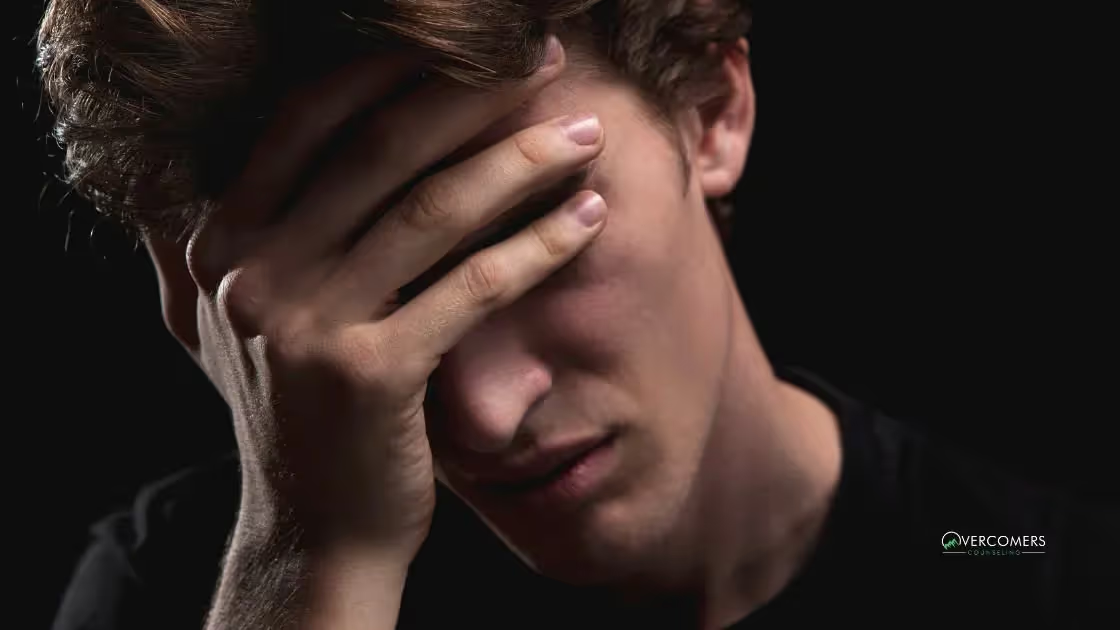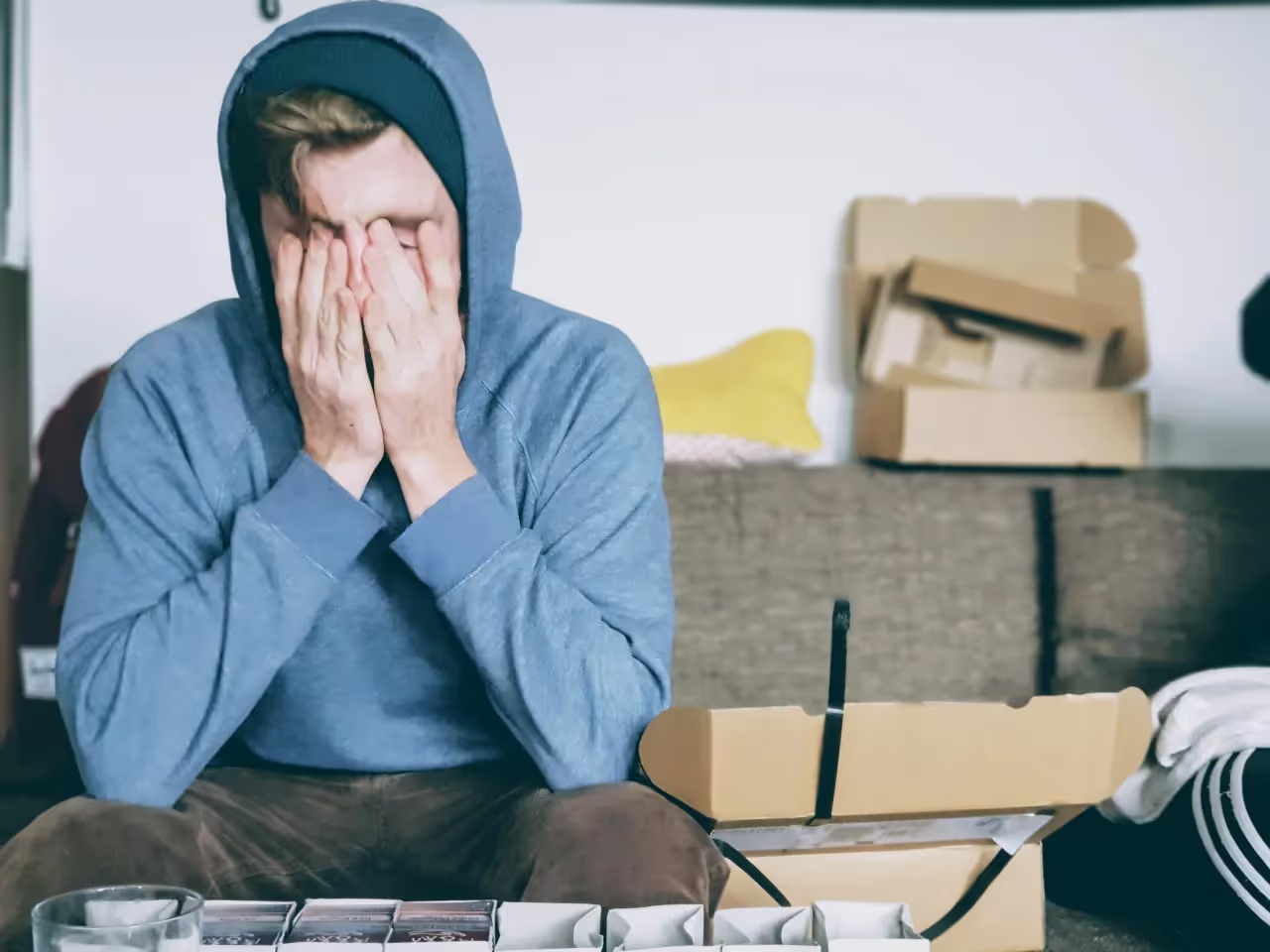It is a normal human feeling to feel sad after someone dies. Most people begin grieving after the death of another person, especially after losing a loved...

It is a normal human feeling to feel sad after someone dies. Most people begin grieving after the death of another person, especially after losing a loved one. Understanding the reasons why we feel sad after someone dies would help to give excellent grief support. After the death of someone, it is likely that you will enter a period of grief. One of the reasons for grief is to feel better in the long run. Sadness is a natural part of most people's grief process. A reason why we feel sad after someone dies is to gain the support of other people. You can find comfort in the support of others in times of need. Sadness can be a way for family and friends to rally around to offer their support. A part of the reason why we feel sad after someone dies is that we remember death. It is possible to be reminded of the death of a loved one by another person's death. You might also feel sad after someone dies because it makes you reflect on death generally. You can find out the reasons why we feel sad after someone dies:
The act of feeling sad after the death of a person is a natural feeling. After the loss of a person, most people enter a grieving process. Each person is likely to have a peculiar way of grieving but feeling sad is a common part of the grief process. The sadness can help the natural grieving process that most people experience. It allows your mind time to mourn and accept the loss. Ultimately, the result of feeling sad at one point is that you feel better subsequently. For instance, you could feel sad and cry about the loss of a person. However, after crying, you might find yourself feeling better. Not feeling sad after the loss of a loved one might be a sign of suppressed feelings. Suppressing your feelings of sadness could delay your natural grief process. It is possible that it might lead you to displace your feelings into other things. One of the reasons why we feel sad after someone dies is to begin our grieving process and feel better.
Death can come as a surprise. The shock of a person's death can leave a person disillusioned about loss and life. In a short moment, all your hopes and ambition with a person can end. The loss of a person close to you can come as a shock. It is easy to become used to the assumption that a person will always be there. One of the primary reasons we feel sad after someone dies is that our hopes and dreams for that person vanish. This sadness could also come from the loss of a celebrity or a person distant from you. The loss suffered in this manner will likely come as a shock. After growing used to a person, the loss of a person can be challenging to accept. Dealing with the absence of a person from our lives can be sad. The prospects of having a future in some manner with the deceased can be difficult to bear. Accepting you might not get any new music from a celebrity or a hug from a loved one could make a person sad.
Losing someone dear to you can be difficult for most people. The death of one person can remind one of the deaths of a loved one. This could happen if the manner of death was similar or at the same period. There are many reasons the death of one person could remind you of the death of someone special. When the memories of a loved one resurface, it could feel like experiencing the death of a loved one again. This process is capable of making a person sad and reflective. For some people, a person dying reminds them of the concept of death. Death can be a somber topic for most. Although it is an inevitable part of life, there is usually some fear associated with it. This could be the fear of losing a loved one or even the fear of dying. A part of why we feel sad after someone dies is that we relate a bit more closely to the idea of death. This could be a reason for some people to reflect on their lives.

One of the reasons why we feel sad after someone dies is to gain the support of others. When people struggle in life, there is usually need help from other people. Losing a person can be one of the moments of struggle for most people. Sadness usually has certain traits associated with it that other people can detect. When you demonstrate these feelings, other people can understand that you are sad and offer their support. For instance, you could cry, and your friends could notice you are sad. There might be other signs that are particular to you that receive sadness that other people can pick up. The signs or traits from you are likely to be subconscious. You might not notice any need for support from other people but benefit from receiving the support of others. At our core, people are social at heart. This means that at some of our most difficult moments, such as the loss of someone, our need for support from others might arise. However, it is essential to note that the support each person wants is likely to be different.
Most humans form personal connections with the people we meet or interact with. The loss of a person can either weaken or erase our intimate relationship with these people. One of the reasons why we feel sad after someone dies is to acknowledge our loss. Whenever we remember the loss of a loved one, we are also reminded of the personal connection we shared. Sadness could arise from acknowledging the loss of a loved one. This type of sadness might be bittersweet, with positive memories mixed with sadder memories. For example, it is possible to feel sad after a loved one died many years ago. When remembering a person in the present, we might feel sad about the past we shared with them. This means the sadness we feel could come from acknowledging the loss of loved ones. Sadness like this can be related to reflections. At some point, most people will lose loved ones. Even after healing significantly, you might still feel sad at the thought of a lost loved one.
The death of a person will usually lead to some form of grieving for most people. To be able to provide grief support for ourselves and others, it is worth looking into why we feel sad after someone dies. There are many possible reasons why we feel sad after someone dies, such as trying to feel better, having our hope vanish, relating to death, receiving support, and acknowledging our loss.
https://www.joincake.com/blog/why-do-we-cry-when-someone-dies/
https://www.seattletimes.com/seattle-news/why-does-death-make-us-so-sad/
https://au.reachout.com/articles/feeling-grief-when-someone-famous-dies
https://www.betterhelp.com/advice/grief/how-to-deal-with-intense-sadness-and-sorrow-after-a-death/
https://www.helpguide.org/articles/grief/coping-with-grief-and-loss.htm
There are many healthy ways to cope with the pain of a breakup. Some strategies include engaging in self-care activities, writing in a journal, reaching out to loved ones for support, and reframing your perspective. Additionally, seeking professional help can be an important step toward healing after a breakup.
Dealing with grief involves allowing yourself to experience grief, seeking support from family members or a mental health professional, and taking care of your physical health. It's also important to remember that everyone grieves differently and there's no "right" way to grieve.
Ignoring grief can exacerbate symptoms and make it more challenging to manage over time. This can result in a negative impact on your personal, professional, and social life, leading to feelings of isolation, chronic sadness, and even physical health complications.
Grief can be particularly intense in the early days following a loss. However, it's not uncommon for grief to become more pronounced at certain times, like at night or in the morning. This can be due to the mind being busy processing the events that happened.
It is completely normal to feel dread or even fear when thinking about the upcoming holiday season. One way to ease your anxiety is by planning ahead and being prepared for how you will deal with tough moments. If there are certain events you know will be difficult, try to come up with an exit strategy beforehand so you can leave if needed. It can also be helpful to talk to a therapist or counselor before the holidays to help you manage your expectations and emotions.
There is no "right" or "wrong" answer when it comes to how long grief will last in the elderly. For some people, the grieving process may last for several months or even years. For others, it may come in waves – they may have periods of intense grief followed by periods of relative calm. It's important to remember that everyone grieves in their own way and at their own pace.